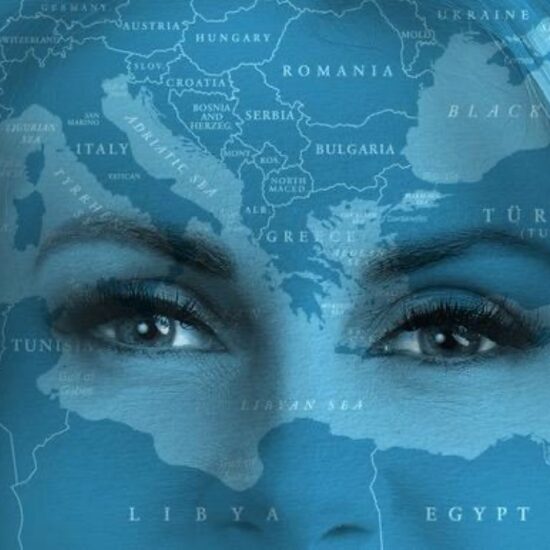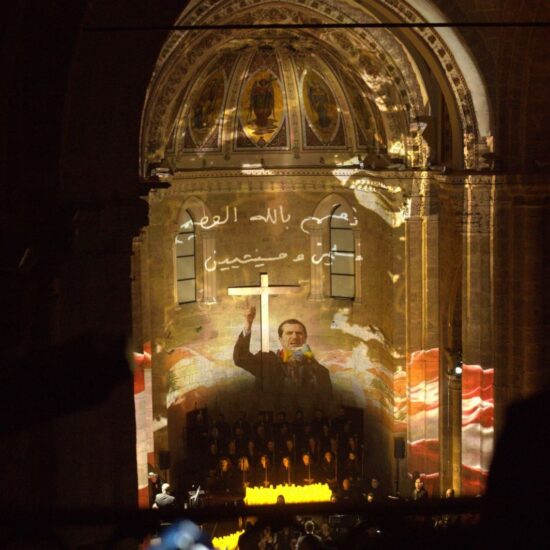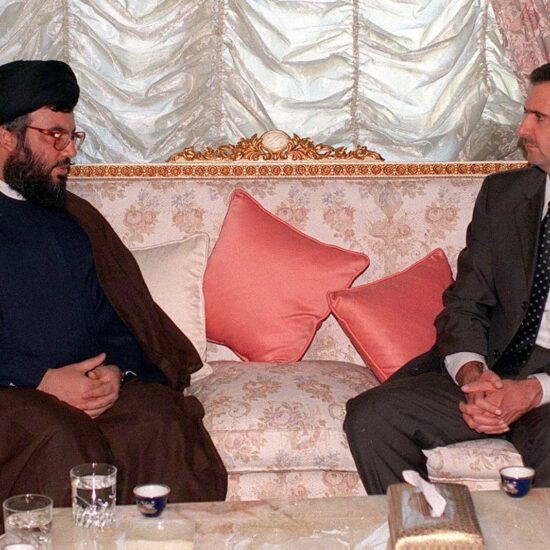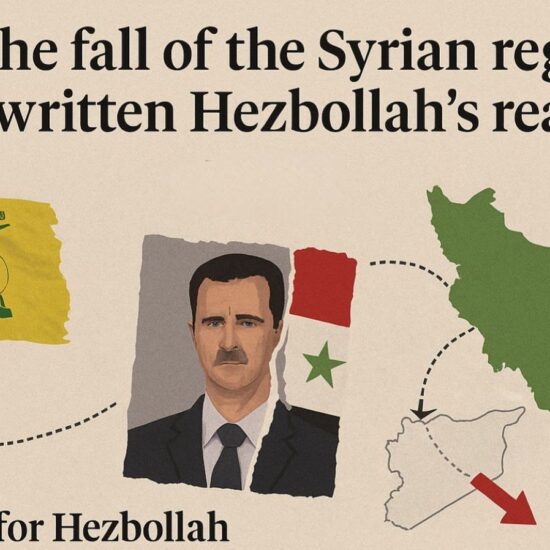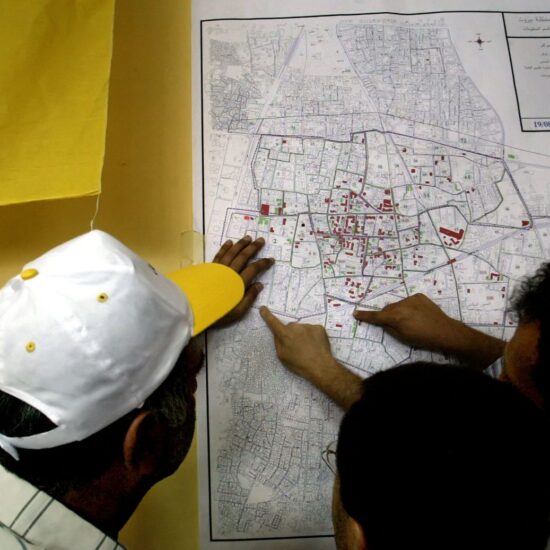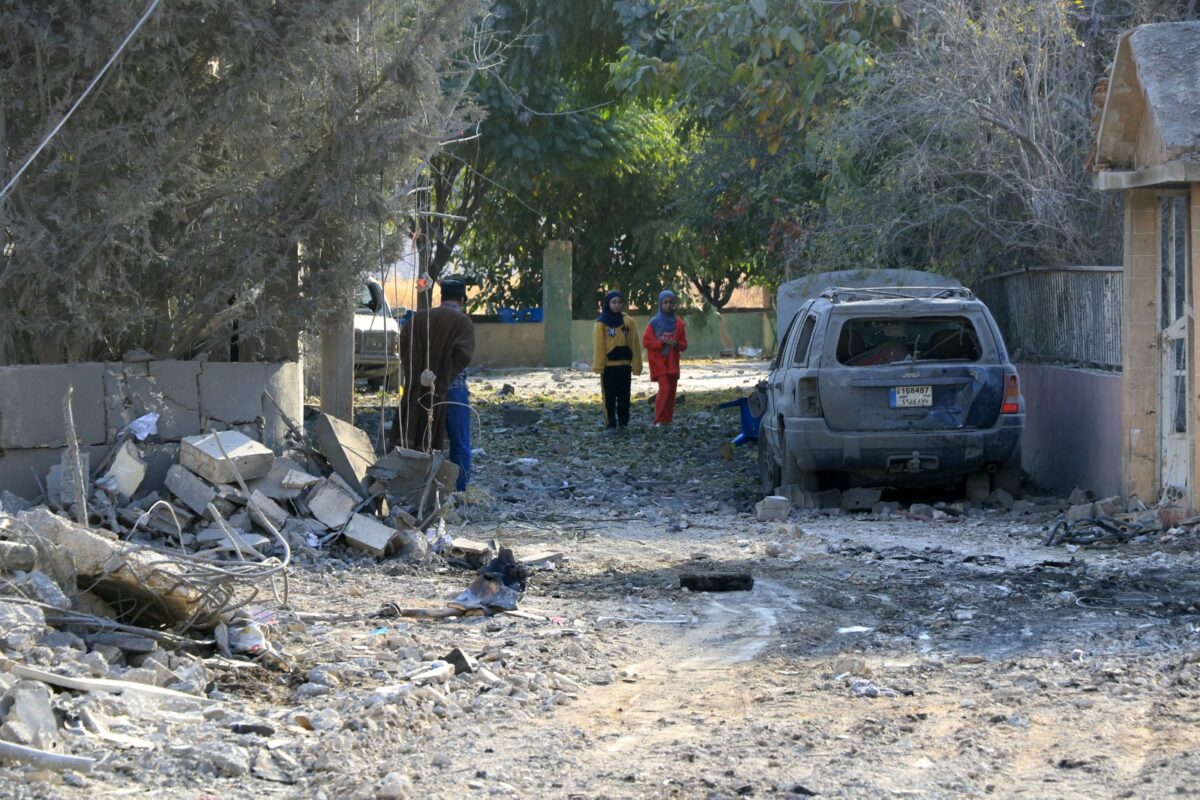
As massive evacuation orders force people fleeing northern Beqaa Valley, a community of doctors, guided by Feras Alghadban, is re-thinking healthcare in times of war
Another threat, another escalation of violence. Another massacre committed by Israel’s blind war on Lebanon’s Hezbollah. This time: Baalbek, north Beqaa, where, since the early hours of Wednesday, October 30, a widespread evacuation call was made to all the residents of the ancient city and its surroundings to leave immediately. It was the first time, since the beginning of the conflict, that a call for evacuation was addressed to the residents of a whole area: officially targeting the party’s command centres and infrastructures, potentially killing anyone unable or unwilling to flee.
A first chain of strikes on the towns of Baalbek, Ain Bourdai and Douris, on the same day – after serial strikes devastated houses in Beit Salibi and Bednayel -, forced the first wave of what has rapidly turned into a massive exodus, killing 19 people. At least 11 more were then murdered in successive airstrikes in the western region of the Valley, particularly in the village of Sohmor, leaving 15 more wounded. And again on Thursday, October 31, another Israeli airstrike killed 8 people, including 2 children, in the city of Baalbek.
Only in the night between Monday and Tuesday, previous attacks murdered more than 65 residents in the same areas, marking the deadliest day yet in more than a year of hostilities in the Beqaa: without, and it must be underlined, any evacuation orders being given for any of the towns struck.
The area under direct threat is home to around 400,000 people, who are now trying to move on the dangerous and jammed roads that were left to seek safety somewhere else. Even if relatively, even if only temporarily. Collecting, in the best case, the remnants of their scattered lives in a pile of bags, loaded on the roof of a car, for the trunk is packed with people: children, elderly, women. Packed the cars, packed the bags. In a matter of seconds, the decision of what to take, and what to leave behind. Some accustomed to exile from experiences of previous wars – others unable to weigh the need for an item, what will be needed tomorrow and what not, how cold the next winter will be, while the children do not stop crying. A blanket – a toy – or a book: how to choose, when there is not space for everything to be collected, nor enough time for rational consideration.
Before Wednesday’s evacuation order in north Beqaa, the war had already forced 60 percent of its estimated 250,000 residents to flee, while the rest were mainly crammed into the city’s few Sunni-majority neighbourhoods. Needless to say that among the displaced – some of whom had already have to leave their homes, and were living in crowded shelters, questioning when they would have been able to return, whether their houses were still standing – are not only vulnerable people, but also those, mainly Syrian refugees, excluded from official shelters, who are facing the constant threat of being left behind, locked out on the street. Especially now that the winter season is approaching.
“Lots of people are now coming to our area to seek refuge from the intensified bombing and attacks on the entire city and surroundings,” Asma Patel – Development Director for Endless Medical Advantage (EMA), yet ‘still a volunteer’, as she defines herself during our interview in the outskirts of Marj – explained. The NGO, refugee-led and founded in 2018 by Feras Alghadban, a Syrian doctor who had been volunteering with other health projects for the Syrian community, and Hadia Aslam, a British GP who had been consulting on health needs for a local NGO, had the main objective of providing an affordable solution to primary healthcare for vulnerable, displaced and disadvantaged communities. And to make it sustainable, affordable, and easily accessible – especially for those who have experienced displacement, hardship and loss. And whose traumatic memories, today, Israel is responsible for exhuming: if ever such grief could be buried.
For the excluded ones
Since the beginning of the latest escalation, at the end of September, EMA’s staff and volunteers have been coordinating with local partners – seven other refugee-led organisations – to immediately respond and maximise capacity in their shelters, 17 so far, opening their doors to any excluded, and trying to support all of them – which humanitarian circumstances, political reasons, and a multi-layered racism, have decided to be mainly Syrians.
“For us, we decided to focus our efforts on providing help for the communities that are being excluded. We knew, as soon as people started arriving, that they had tried to find shelter in schools, but were rejected since they were not carrying their papers,” Asma explains, on the site of the new caravan-shelters hosting three large families – each of them can host up to twelve people – from south Lebanon. They are all Syrians – who are going to another heartbreaking displacement and further uprooting of their lives. “And as every day,” Asma continues, “yesterday morning we received a call about another Syrian family on the streets in Saadnayel, with no place to go. We’ve welcomed this family of two adults and five children to stay in one of the caravans, as they were forced to flee from the area of Baalbek and could only bring a small bag of clothes.”
Of the 130 individuals welcomed so far – 70 percent are children. “In these stressful and dangerous times, they weren’t able to find any shelter elsewhere. We are grateful to be able to provide a space for them where they are warm and safe,” she says, as those same children, suffering the consequences of a war that should not concern them – deprived of the right to the future – claim at least the one to childhood, and keep on playing around us, knocking over the cups of coffee that always, despite the tragedy that is taking place, the culture of hospitality of these people insists in offering to the visitor.
“Whether they’re Syrians, or Palestinians, or migrant workers, or Lebanese from different backgrounds, it doesn’t really matter. We are open to host anyone in need. We are seeing so many Lebanese frustrated by the same level of discrimination, only because of their religion. Everyone is living the same war. And those who are bombing do not discriminate whether you are Lebanese or Syrian, Palestinian or a foreigner. These frustrations are widespread, and we as EMA want to do the best we can for the safety of the people.”
However, the reality on the ground – especially in the Beqaa, not far from the Syrian borders – proves that being Syrian is a further burden weighing on the shoulders of the displaced. Those coming from the south, for example, who were mainly hired as daily construction workers, or seasonally as farmers, came from isolated places. Not knowing many people, and carrying the sigma of being Syrian, makes them the most vulnerable: so the most in need for support.
To date, according to Lebanese authorities, 1,097 approved shelters for the Lebanese internally displaced have been opened, and the number of those that have reached their maximum capacity is already 922: the 84 percent. As Syrian refugees fleeing the escalating conflict are denied access to the approved and official shelters, doubly-displaced Syrian nationals are left with little options: for many of them – around 350 thousands now – going back to Syria, facing forced conscription, Russian bombing, and the regime’s oppression, is one. A risk there’s no choice to avoid taking, a crapshoot whose only jackpot is survival.
Asma and the other members of the EMA team have witnessed it firsthand, with families of refugees crossing on foot the bombed Masnaa crossing, one of the six official ones between Lebanon and Syria – with Jusiyah and Matraba on the eastern borders, and Talkalakh, Dabousieh, and Al-Arida, on the north – still open, despite being continuously targeted by Israeli airstrikes, as one of the main access of weapons into Lebanon. “Literally, one by one, members of entire families walked through the crater left by the explosion. It’s impressive, it’s still there.” Still – apparently – less scary than being left sleeping in the streets, as winter approaches, under the ongoing threat of further bombardments.
Mobile clinics
“Since last month we’ve primarily been running mobile medical clinics, but before that we used to work in office spaces, like the one in Marj, west Beqaa, and Ksara, just before Zahle, where we would visit patients with specific case, as well as hold our dental clinic. But our work is traditionally mobile,” Dr. Feras explains. “We operated with two big mobile medical units, prior to the war, working in almost 60 refugee camps in the area, seven days per week, every week. But with the number of shelters opening, with the increasing number of people seeking refuge here, we decided to transform our offices into shelters, and shift to only mobile work.”
EMA is the only local healthcare organisation, aside from the big NGOs, working in preventive care: and none of them operate the way they do. “For the past few years, having worked in the refugee camps, we learned how to constantly re-mobilise, especially in emergency situations. Usually, it was due to the harshness of winter, with camps being evacuated because of flooding. This year, it is due to the massive displacement consequent to the war.”
Having gotten used, by the experience of time, to emergency response during winter period, for years EMA’s centres have been used as shelters and temporary housing for the displaced. War, apparently, needs a similar response to those that winter forces upon vulnerable people. But how to respond to the two burdens together – winter approaching in times of war and massive displacement – is an issue that only Dr. Feras seems able to manage. Having experienced the war in Syria, he knows how to be prepared for worst-case scenarios.
“Dr. Feras is a visionary. His knowledge comes from the ground, and is applied to the ground,” Asma tells me. He fled the war in his homeland in 2017, and since then has been spending his days and nights treating refugees and citizens in Lebanon’s Beqaa Valley. Without ever taking a day off, he never switches his phone off. “I have to be always available, I would feel guilty if an emergency happens when I am not reachable. Sometimes I feel my whole family is volunteering with me,” he admits. Indeed, he’s been hosting 25 people fleeing the war in the south in his house, where he’s also organising a community kitchen for the displaced, in addition to the ones EMA opened in their shelters.
“Now that rain has not started falling yet, and the weather is still mild, it is time to think of cold, immune disease, scabies, flu, and sanitation, that always goes with it. That’s the meaning of prevention. We can’t afford to ignore any of these possibilities: I’ve already spent seven winters in the Beqaa, I know it’s a reality.” And I would add: a harsh one.
Asma interrupts: “Dr. Feras has experienced working with refugee communities here, and before that in the Syrian war, he always had to think two or three steps ahead. We need people like him around. We’re not just thinking about the problems now, but the solutions for the future.”
Even the caravans built as temporary shelters, better equipped and more seasonal-proof alternatives as opposed to tents, have been chosen thinking long-term: not only for emergency sheltering, but also as multi-purpose facilities for EMA’s ongoing medical campaigns, education and awareness activities, once the war will end and all the displaced could go back home.
“But this isn’t a matter of months. Even after a ceasefire is reached, it’s going to take years to rebuild the south, and ensure these families with a safe path returning home,” Asma acknowledges. In other words, it is not just about a cessation of hostilities: it’s about reconstruction and safe return. “And it’s such a long way, that it forces us to think of and to believe in a future that hundreds of thousands of people have lost any hope and perspectives for.”
Thinking long-term
Asking her what is the most urgent need seems like a joke. “The most pressing urgency? That’s a loaded question,” she laughs. “It is hard to say. Initially, it is shelters, mobilising to base some funds just needed to find shelter spaces.” “But a shelter is just a roof over someone’s head. Once that need is provided, then they need something to sleep on. They need blankets, covers, mattresses. Winter is coming, and here in the Beqaa we know that the weather we’ve been having for the last couple of weeks is not going to last for the next couple of months.”
“Then,” she continues, “they need food and clothing. Most of the time, these people arrive with nothing – without papers, passports, money, someone just in their sleepers, not even carrying a bag of clothes, just one for the babies, that’s it. We saw it firsthand. Elderly people came without medications nor prescriptions for diabetes or pressure control. How do you prioritise? Where do you focus your effort?”
Of all the questions I would have asked the people I’ve met, I didn’t dare ask the ones about the future: school, work, settling down. Not even – to a child – about their dreams and ambitions. No one knows. Though, talking with Asma made me realise that people working and volunteering in the emergency response sector are making the impossible. Jugglers of time and life, as entire families needed to leave in a rush without even having time to pack, they have, everyday, to trace possible answers to the question I myself could not find the words to phrase. Expecting what people will be needing, foreseeing what they left behind in their haste to escape – from a blanket, to sanitary products, to vital medications. Having all of these ready, for when they’ll arrive.
“Not only that. We are constantly thinking about the future, the future of the shelters as they are – whether they’ll be temporary accommodations for families, for rotating families, or maybe we’ll use the same for whatever purpose in the future. Crisis is expected. And the destiny of these people, I mean, look at what’s happening in Gaza. Who knows how long this place is going to be considered safe.”
However, they’re not alone: with the help and the coordination of other six NGOs – Tahaddi Lebanon, Frontliners For Change, Molham Team, The Free Shop Lebanon, A-Ripple-International – each focused on a specific need, from food preparation and distribution, to education, from primary health care, consultation and medication, to psychosocial services and livelihood opportunities, from clothing, to hygiene, they’ve been able to fill the gap left by the government, without creating more. So that no one, this time, is going to be left out. “We learned how to be stronger and better together, I know it sounds like a tagline, but it’s true,” Asma continues, as the sun sets down, and the first cold rises with the evening, and what seems to concerns the displaced women most is whether I am cold or not, if I have warm-enough clothes, or I want another cup of hot coffee. Even if they know I am driving back to Beirut soon, to my safe neighbourhood, with all the commodities I need – while they have lost everything, except for the innate culture of hospitality that not even the tragedy of yet another war can shake.



